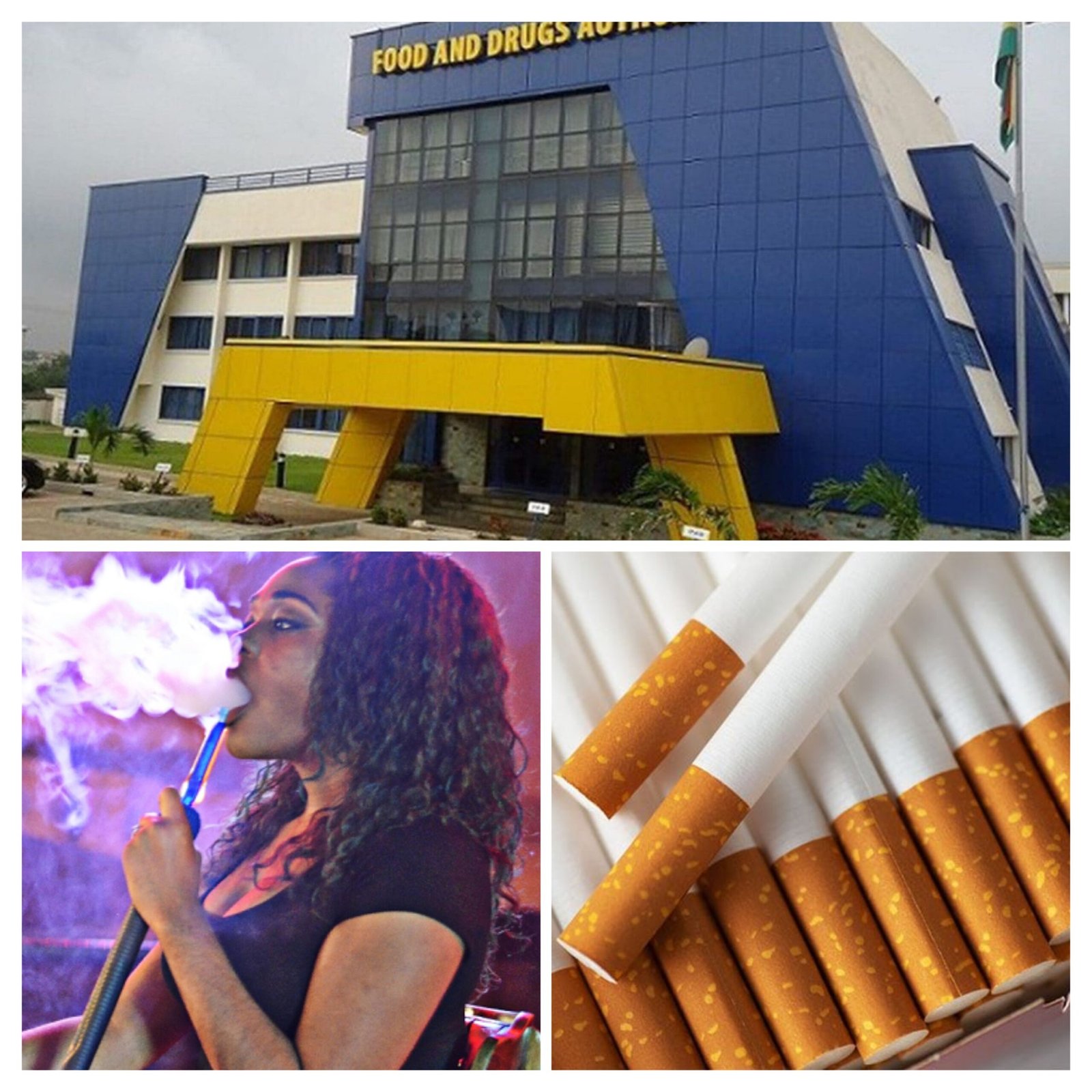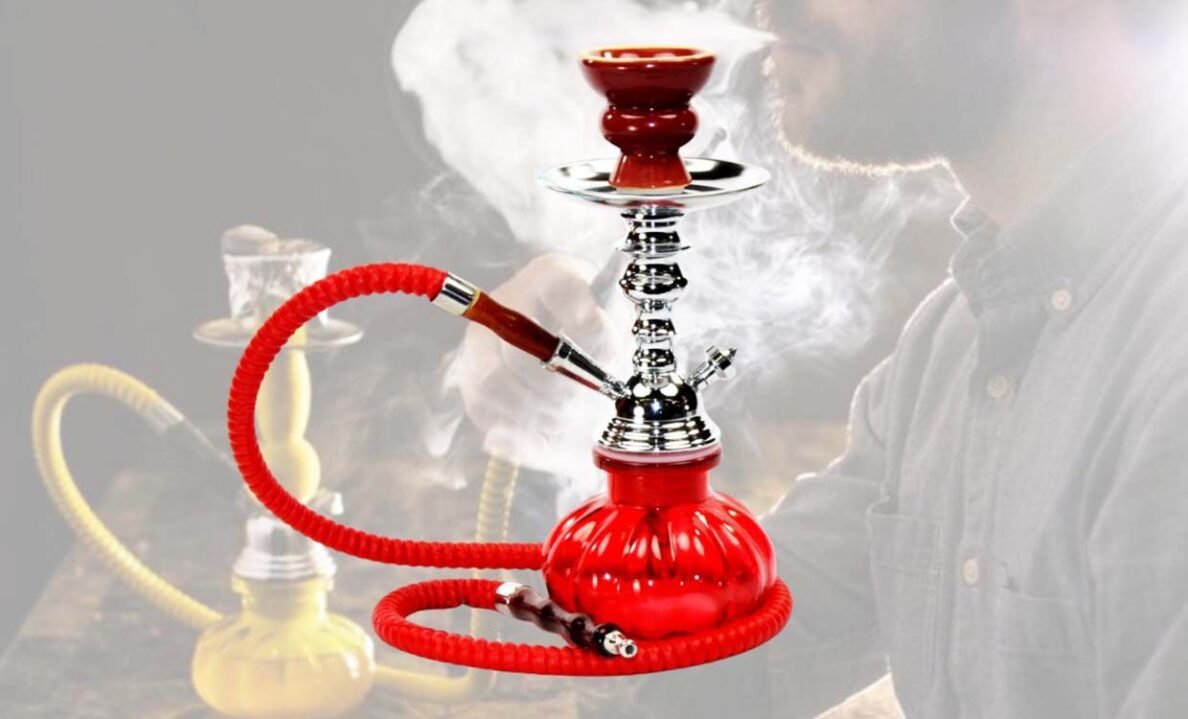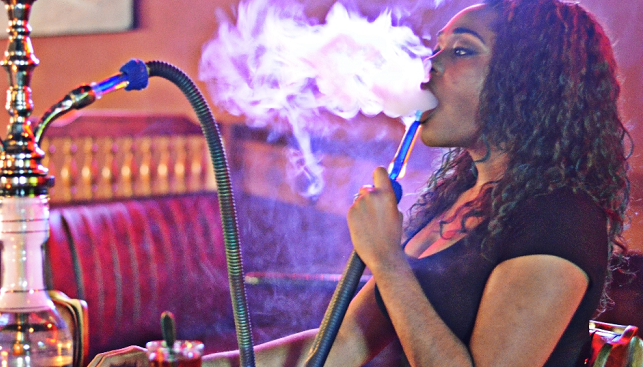1 Hour Smoking Shisha = 100-200 Cigarettes; FDA Warns Ghanaian Consumers

The Food and Drugs Authority (FDA) of Ghana has sounded an alarm on the dangers associated with shisha smoking, likening an hour of shisha use to consuming between 100 to 200 cigarettes. The regulatory body is urging the public to reconsider indulging in this growing trend, which poses significant health risks.
Shisha Smoking: A Growing Lifestyle Concern

Shisha, also known as hookah or water-pipe smoking, has seen an increase in popularity globally and in Ghana, especially among the youth. Social gatherings, lounges, and recreational spaces often promote it as a safer or more socially acceptable alternative to cigarette smoking. However, health experts and regulatory bodies are concerned that this perception is dangerously misleading.
The FDA’s Chief Executive Officer issued a stern warning, emphasizing that just one hour of shisha use is as harmful as smoking 100 to 200 cigarettes. The Authority’s public health message seeks to curb the growing interest in ‘hookah’ use, particularly among younger populations, by highlighting the underestimated risks.
Health Hazards Associated with Shisha/Hookah

While many assume that the water filtration system in hookahs minimizes the health impact, research shows otherwise. According to the World Health Organization (WHO), hookah smokers are exposed to toxic substances such as carbon monoxide, tar, nicotine, and heavy metals, which are also found in cigarettes. In fact, due to the longer duration of shisha sessions and deeper inhalation, users often absorb more smoke than they would from cigarettes.
A report by the American Lung Association further indicates that an average hookah session involves inhaling 90,000 milliliters of smoke, compared to 500 to 600 milliliters from a single cigarette. This massive exposure contributes to respiratory diseases, cardiovascular issues, and cancers, including lung and oral cancers.
Addressing the Misconceptions
One of the FDA’s key challenges is tackling the false narrative that hookah is less harmful. The fruity flavors, smooth smoke, and social nature of hookah smoking create an illusion of safety. However, experts stress that both first-hand and second-hand exposure to hookah smoke are harmful. The FDA’s warning aligns with global public health campaigns focused on eliminating misconceptions around hookah use.
According to the Ghana Health Service (GHS), non-communicable diseases such as lung cancer and heart disease are on the rise, with tobacco use—including shisha—being a contributing factor. The FDA’s public education efforts aim to prevent further deterioration of public health by encouraging citizens to avoid smoking hookah entirely.
Regulatory Measures and Public Awareness
The FDA’s call for action comes as Ghana aligns itself with international tobacco control frameworks, such as the WHO Framework Convention on Tobacco Control (FCTC). Several countries, including South Africa and Kenya, have implemented strict measures to curb shisha use through taxes, public bans, and public health campaigns. The FDA is likely to push for similar regulatory policies to limit the accessibility and appeal of shisha in Ghana.
Sources:
World Health Organization (WHO)
American Lung Association
Ghana Health Service (GHS)
Read More: Porn Addiction: 5 Effective Habits to Help You Recover From It















